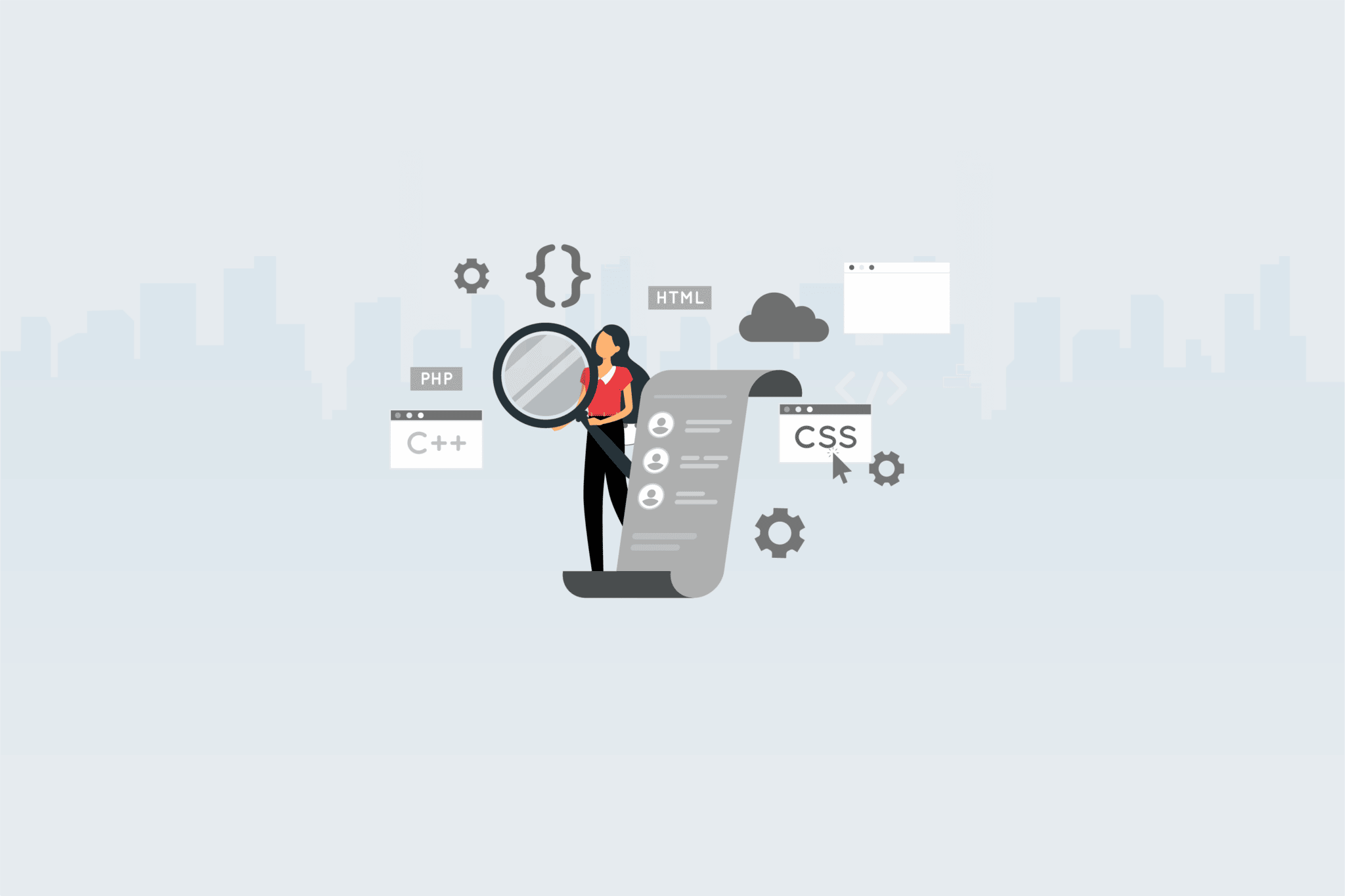Artificial Intelligence (AI) is transforming the way businesses operate and interact with customers. As a result, the demand for AI engineers has skyrocketed, making it an exciting time to pursue a career in this field. AI engineers are responsible for developing and implementing AI solutions to solve complex business problems and improve processes. They work closely with cross-functional teams to integrate AI into existing systems and processes, stay up-to-date with the latest AI trends and technologies, and conduct research and prototyping to evaluate the feasibility of new AI technologies and approaches.
According to a study conducted by the McKinsey Global Institute, the demand for AI skills is growing rapidly, and by 2030, it is estimated that AI could contribute up to $13 trillion to the global economy.
However, finding the right AI engineer can be challenging. It’s essential to look for someone with a strong technical background, excellent problem-solving and analytical skills, and excellent communication and collaboration skills.
In this blog, we’ll delve into the various qualifications and skills you should look for when hiring an AI engineer and how you can easily hire one with the help of talent assessment tool. From understanding machine learning algorithms to assessing a candidate’s passion for AI and industry experience, we’ll provide you with a comprehensive guide to hiring a successful AI engineer. If you’re a hiring manager, this blog is sure to provide valuable insights and tips.
Introduction to the role of an AI engineer
Artificial Intelligence (AI) has been rapidly transforming the way businesses operate, leading to an increased demand for AI engineers. They are responsible for designing, building, and maintaining AI systems and solutions. They work with various technologies, such as machine learning, deep learning, computer vision, and natural language processing, to develop innovative AI applications that can solve real-world problems.
An AI engineer plays a crucial role in the development of AI systems. They are the ones who turn concepts and ideas into reality by creating algorithms, training models and implementing AI solutions. They must have a deep understanding of both technical and business requirements, as well as the ability to translate these requirements into effective AI solutions.
The role of an AI engineer is multidisciplinary, requiring a combination of technical, mathematical, and creative skills. They must be familiar with the latest AI technologies and trends, as well as be able to design, test, and debug AI systems. They also need to be able to work effectively with teams, as AI projects often involve collaboration with data scientists, software engineers, and other stakeholders.
The role of an AI engineer is to bring together the technical and business aspects of AI, to design, build and maintain innovative AI solutions that deliver real-world results. With the growing demand for AI solutions, the role of an AI engineer is becoming increasingly important, and the skills and qualifications they bring to the table will be critical in driving the success of AI projects.
Job description template for hiring AI engineer
Job title: AI engineer
About the company:
[Insert company description and mission]
Job overview:
We are seeking a highly skilled AI Engineer to join our team. The ideal candidate will have experience developing and implementing AI solutions and a passion for staying up-to-date with the latest AI trends and technologies. This role requires a strong technical background, excellent problem-solving and analytical skills, and excellent communication and collaboration skills.
Responsibilities:
- Develop and implement AI solutions to solve complex business problems
- Collaborate with cross-functional teams to integrate AI into existing systems and processes
- Stay up-to-date with the latest AI trends and technologies and recommend new AI solutions
- Conduct research and prototyping to evaluate the feasibility of new AI technologies and approaches
- Write clean, well-documented, and efficient code
- Troubleshoot and debug AI systems and algorithms
- Participate in code and design reviews to ensure high-quality AI solutions
Requirements:
- Bachelor’s or Master’s degree in Computer Science, Mathematics, or a related field
- At least 3 years of experience in AI engineering or a related field
- Strong technical knowledge in machine learning algorithms, programming languages, and AI tools and frameworks
- Excellent problem-solving and analytical skills
- Excellent communication and collaboration skills
- Strong mathematical and statistical background
- Passion for AI and a desire to stay up-to-date with the latest trends and technologies
- Ability to work well in a fast-paced, dynamic environment
Benefits:
[Insert company benefits, such as health insurance, paid time off, retirement plans, etc.]
Qualifications and skills to look for in an AI engineer
When hiring an AI engineer, it is important to look for the right combination of qualifications and skills. This will ensure that the candidate you hire is able to meet your company’s specific requirements and help drive the success of your AI projects.
Here are some of the key qualifications and skills to look for when hiring an AI engineer:
Technical knowledge
The candidate should have a strong technical background in areas such as computer science, mathematics, and statistics. They should be familiar with machine learning algorithms and have experience working with programming languages such as Python, R, and Java.
Experience with AI tools and frameworks
The candidate should be knowledgeable in using AI tools and frameworks, such as TensorFlow, Keras, PyTorch, and Caffe, to develop and implement AI solutions.
Mathematical and statistical background
The candidate must have a strong mathematical and statistical foundation, including linear algebra, calculus, and probability theory, to be able to understand and work with complex AI algorithms.
Understanding of ethics and bias in AI
The candidate should have an understanding of the ethical and biased implications of AI and be able to design AI systems that are fair, transparent, and unbiased.
Communication and collaboration skills
The candidate must have excellent communication and collaboration skills, as AI projects often involve working with cross-functional teams and stakeholders. They should be able to explain technical concepts to non-technical stakeholders and work effectively with data scientists, software engineers, and other team members.
Problem-solving and analytical skills
The candidate must have strong problem-solving and analytical skills, as they will be responsible for solving complex technical problems and making informed decisions based on data analysis.
Passion for AI and staying up-to-date with the latest trends
The candidate should have a genuine passion for AI and be eager to stay up-to-date with the latest trends and advancements in the field. They should be proactive in learning and experimenting with new technologies and be able to bring fresh ideas to the table.
When hiring an AI engineer, it is important to look for a candidate with a combination of technical knowledge, experience with AI tools and frameworks, a strong mathematical and statistical background, an understanding of ethics and bias in AI, excellent communication and collaboration skills, strong problem-solving and analytical skills, and a passion for AI and staying up-to-date with the latest trends.
Importance of technical knowledge in AI engineering
Technical knowledge is a critical component of AI engineering, as it provides the foundation for designing, building, and maintaining AI systems. A deep understanding of the technical aspects of AI is essential for an AI engineer to be successful in their role.
Here are some of the key areas of technical knowledge that are important for an AI engineer:
Machine Learning Algorithms: The candidate must have a solid understanding of machine learning algorithms, including supervised and unsupervised learning, deep learning, and reinforcement learning. They should be able to identify which algorithm is best suited for a particular problem and be able to implement and fine-tune the algorithm to deliver accurate results.
Programming languages
The candidate should be proficient in programming languages such as Python, R, and Java, as these are the most commonly used languages for developing AI solutions. They should also have experience using libraries and frameworks, such as TensorFlow, Keras, PyTorch, and Caffe, to build and implement AI models.
Mathematical and statistical fundamentals
The candidate must have a strong mathematical and statistical foundation, including linear algebra, calculus, and probability theory, to be able to understand and work with complex AI algorithms.
Computer science fundamentals
The candidate should have a strong understanding of computer science fundamentals, including algorithms, data structures, and databases, to be able to design and implement efficient AI systems.
Deep learning frameworks
The candidate should be familiar with deep learning frameworks, such as TensorFlow, Keras, and PyTorch, and be able to build and train deep learning models for various applications, including image and speech recognition.
Natural language processing
The candidate should have a good understanding of natural language processing (NLP) techniques, including text classification, sentiment analysis, and named entity recognition, to be able to build NLP-based AI solutions.
Technical knowledge is a crucial aspect of AI engineering, and AI engineers must have a deep understanding of the various technical components of AI, including machine learning algorithms, programming languages, mathematical and statistical fundamentals, computer science fundamentals, deep learning frameworks, and natural language processing, to be able to design and implement effective AI solutions.
Assessing essential skills for hiring an AI engineer
Assessing the essential skills of an AI engineer is crucial for making the right hiring decision. Here are the key skills you should assess when hiring an AI engineer:
Programming languages skills assessment
Programming languages play a crucial role in the development of artificial intelligence systems, and AI engineers must have a strong proficiency in one or more programming languages to be successful in their role. Here are some key aspects of programming languages that AI engineers should have experience with:
Python: Python is the most commonly used programming language for developing artificial intelligence solutions. AI engineers should have a strong proficiency in Python and be able to use libraries and frameworks, such as TensorFlow, Keras, PyTorch, and scikit-learn, to build and implement AI models.
R: R is a popular programming language for data analysis and machine learning. AI engineers should have a good understanding of R and be able to use libraries, such as caret and mlr, to implement machine learning solutions.
Java: Java is a widely used programming language for developing large-scale applications. AI engineers should have experience using Java and be able to use libraries, such as Deeplearning4j, to implement deep learning solutions.
C++: C++ is a high-performance programming language that is commonly used for developing AI solutions for real-time applications, such as robotics. AI engineers should have a good understanding of C++ and be able to use libraries, such as OpenCV, to implement computer vision solutions.
SQL: SQL is a relational database management system that is used to store and manage data. AI engineers should have a good understanding of SQL and be able to use SQL databases, such as MySQL and PostgreSQL, to store and retrieve data for AI solutions.
Experience with programming languages is a critical aspect of AI engineering, and AI engineers should have a strong proficiency in one or more programming languages, including Python, R, Java, C++, and SQL, to be able to design and implement effective AI solutions. Additionally, AI engineers should have experience using libraries and frameworks, such as TensorFlow, Keras, PyTorch, and scikit-learn, to build and implement AI models.
AI tools and frameworks skills assessment
AI tools and frameworks play a crucial role in the development of artificial intelligence systems and can greatly enhance the efficiency and effectiveness of AI engineers. Here are some key AI tools and frameworks that AI engineers should be familiar with:
TensorFlow: TensorFlow is an open-source software library for dataflow and differentiable programming, developed by Google. It is one of the most popular deep learning frameworks and is widely used for developing AI solutions. AI engineers should have a good understanding of TensorFlow and be able to use TensorFlow to build, train, and deploy deep learning models.
Keras: Keras is a high-level neural network API that runs on top of TensorFlow. It is a user-friendly framework that makes it easier for AI engineers to build and train deep learning models. AI engineers should have a good understanding of Keras and be able to use Keras to implement deep learning solutions.
PyTorch: PyTorch is an open-source machine learning library based on the Torch library. It is a popular deep learning framework that is widely used for developing AI solutions. AI engineers should have a good understanding of PyTorch and be able to use PyTorch to build, train, and deploy deep learning models.
Scikit-learn: scikit-learn is a machine learning library for Python that provides simple and efficient tools for data mining and data analysis. AI engineers should have a good understanding of scikit-learn and be able to use scikit-learn to implement machine learning solutions.
OpenCV: OpenCV is an open-source computer vision library that is widely used for computer vision applications. AI engineers should have a good understanding of OpenCV and be able to use OpenCV to implement computer vision solutions.
Numpy: Numpy is a library for the Python programming language that provides support for large, multi-dimensional arrays and matrices, along with a large collection of high-level mathematical functions to operate on these arrays. AI engineers should have a good understanding of Numpy and be able to use Numpy to perform numerical operations on arrays and matrices.
Familiarity with AI tools and frameworks is a critical aspect of AI engineering, and AI engineers should have a good understanding of TensorFlow, Keras, PyTorch, scikit-learn, OpenCV, and Numpy to be able to design and implement effective AI solutions. These tools and frameworks provide AI engineers with the necessary tools and resources to build and train AI models, and greatly enhance the efficiency and effectiveness of AI engineering.
Strong mathematical and statistical skills assessment
A strong mathematical and statistical background is a critical aspect of AI engineering, as it provides the foundation for the development of artificial intelligence systems. Here are some key mathematical and statistical concepts that AI engineers should have a good understanding of:
Linear algebra: Linear algebra is the branch of mathematics that deals with linear systems of equations and their transformations. AI engineers should have a good understanding of linear algebra, including matrix operations, eigenvalues, and eigenvectors, to be able to design and implement linear models.
Calculus: Calculus is the branch of mathematics that deals with the study of rates of change and slopes of curves. AI engineers should have a good understanding of calculus, including differentiation and integration, to be able to understand and implement gradient-based optimization algorithms.
Probability and statistics: Probability and statistics provide the foundation for machine learning algorithms. AI engineers should have a good understanding of probability and statistics, including hypothesis testing, Bayesian statistics, and Gaussian distributions, to be able to design and implement machine learning models.
Information theory: Information theory is the branch of mathematics that deals with the quantification, storage, and communication of information. AI engineers should have a good understanding of information theory, including entropy, cross-entropy, and Kullback-Leibler divergence, to be able to evaluate and optimize the performance of AI models.
Optimization: Optimization is the process of finding the best solution to a problem by minimizing or maximizing an objective function. AI engineers should have a good understanding of optimization, including gradient descent, stochastic gradient descent, and conjugate gradient, to be able to optimize the performance of AI models.
A strong mathematical and statistical background is a critical aspect of AI engineering, and AI engineers should have a good understanding of linear algebra, calculus, probability and statistics, information theory, and optimization to be able to design and implement effective AI solutions. These mathematical and statistical concepts provide the foundation for the development of AI models, and a good understanding of these concepts enables AI engineers to build more accurate and effective AI systems.
Understanding of machine learning algorithms
Machine learning algorithms are a fundamental component of artificial intelligence and play a crucial role in enabling AI systems to learn from data and make predictions or decisions. Understanding machine learning algorithms are essential for AI engineers to be successful in their roles.
Here are some key aspects of machine learning algorithms that AI engineers should understand:
Supervised and unsupervised learning: The candidate must have a good understanding of the difference between supervised and unsupervised learning algorithms. Supervised learning algorithms use labeled data to learn and make predictions, while unsupervised learning algorithms use unlabeled data to identify patterns and relationships in the data.
Deep learning: Deep learning algorithms are a type of machine learning that use artificial neural networks to model complex relationships between inputs and outputs. The candidate should have a good understanding of deep learning algorithms and be able to build and train deep neural networks for various applications, including image and speech recognition.
Reinforcement learning: Reinforcement learning is a type of machine learning that uses a reward-based approach to train AI systems to perform specific tasks. The candidate should have a basic understanding of reinforcement learning algorithms and be able to implement reinforcement learning solutions for various applications, such as game-playing and robotics.
Decision trees: Decision trees are a type of machine learning algorithm that uses a tree-like structure to make predictions based on input data. The candidate should understand how decision trees work and are able to use decision trees for classification and regression problems.
Naive bayes: Naive Bayes is a simple but effective machine-learning algorithm for classification problems. The candidate should understand the underlying principle of Naive Bayes and be able to implement Naive Bayes solutions for various applications.
k-nearest neighbors: k-Nearest Neighbors (k-NN) is a non-parametric machine learning algorithm that is used for classification and regression problems. The candidate should understand how k-NN works and be able to implement k-NN solutions for various applications.
Support vector machines: Support Vector Machines (SVMs) are a type of machine learning algorithm that is used for classification and regression problems. The candidate should have a good understanding of SVMs and be able to implement SVM solutions for various applications.
Understanding machine learning algorithms is a crucial aspect of AI engineering, and AI engineers should have a deep understanding of supervised and unsupervised learning, deep learning, reinforcement learning, decision trees, Naive Bayes, k-Nearest Neighbors, and Support Vector Machines, to be able to design and implement effective AI solutions.
Communication and collaboration skills assessment
Communication and collaboration skills are essential for success as an AI engineer, as they are critical to working effectively with cross-functional teams and stakeholders. Here are some key communication and collaboration skills that AI engineers should have:
Written communication: Written communication skills are important for documenting AI systems and sharing information with stakeholders. The candidate should be able to write clear, concise, and technical documentation that is easy to understand for both technical and non-technical audiences.
Verbal communication: Verbal communication skills are important for communicating with stakeholders and presenting information in meetings and presentations. The candidate should be able to communicate complex technical information in a clear and concise manner and effectively answer questions and address concerns.
Interpersonal skills: Interpersonal skills are important for building relationships and working effectively with cross-functional teams and stakeholders. The candidate should be able to work well with others, build trust, and effectively collaborate on projects.
Active listening: Active listening skills are important for understanding the needs and concerns of stakeholders and ensuring that AI systems are designed to meet their requirements. AI engineers should be able to listen attentively and ask questions to gain a deeper understanding of stakeholder needs and feedback.
Teamwork: Teamwork skills are essential for working effectively with cross-functional teams and stakeholders. AI engineers should be able to work well in teams, share ideas and knowledge, and collaborate on projects to deliver high-quality AI solutions.
Communication and collaboration skills are essential for success as an AI engineer, and AI engineers should have strong written communication, verbal communication, interpersonal, active listening, and teamwork skills to be able to work effectively with cross-functional teams and stakeholders. Effective communication and collaboration skills are critical to ensuring that AI systems are designed and implemented to meet the needs and requirements of stakeholders and to deliver high-quality AI solutions that have a positive impact on society.
Problem-solving and analytical skills assessment
Problem-solving and analytical skills are essential for success as an AI engineer, as they are critical to identifying, analyzing, and solving complex problems related to AI systems. Here are some key problem-solving and analytical skills that AI engineers should have:
Analytical thinking: Analytical thinking skills are important for analyzing data, evaluating information, and making informed decisions. The candidate should be able to think critically and systematically and use data and information to make informed decisions about AI systems.
Creative problem solving: Creative problem-solving skills are important for coming up with innovative solutions to complex problems related to AI systems. The candidate should be able to think creatively, identify and evaluate potential solutions, and select the best course of action.
Attention to detail: Attention to detail is important for ensuring that AI systems are designed and implemented accurately and effectively. The candidate should be able to pay close attention to detail, catch and fix errors, and ensure that AI systems are working as intended.
Debugging and troubleshooting: Debugging and troubleshooting skills are important for identifying and fixing problems with AI systems. The candidate should be able to diagnose and resolve complex technical problems related to AI systems, and to ensure that AI systems are working optimally.
Decision-making: Decision-making skills are important for making informed decisions about AI systems. The candidate should be able to use data and information to evaluate options, make informed decisions, and take appropriate action.
Problem-solving and analytical skills are essential for success as an AI engineer, and AI engineers should have strong analytical thinking, creative problem-solving, attention to detail, debugging and troubleshooting, and decision-making skills to be able to identify, analyze, and solve complex problems related to AI systems. Effective problem-solving and analytical skills are critical to ensuring that AI systems are designed and implemented accurately and effectively, and to delivering high-quality AI solutions that have a positive impact on society.
Understanding of ethics and bias in AI
Understanding ethics and bias in AI is an essential aspect of AI engineering, as it ensures that AI systems are designed and implemented in a way that is ethical, fair, and just. Here are some key concepts related to ethics and bias in AI that AI engineers should be familiar with:
Algorithmic bias in AI ethics
Algorithmic bias refers to the systematic and unintended discrimination that is present in AI algorithms. AI engineers should understand the sources of algorithmic bias and how to detect and mitigate it in AI systems.
Fairness and equality in AI ethics
Fairness and equality are key principles in AI ethics. The candidate should understand how to design and implement AI systems that are fair and equal for all, regardless of race, gender, ethnicity, or other personal characteristics.
Explainability and transparency in AI ethics
Explainability and transparency are important aspects of AI ethics. The candidate should understand how to design and implement AI systems that are transparent and explainable, allowing stakeholders to understand how AI decisions are being made.
Responsibility and accountability in AI ethics
Responsibility and accountability are critical aspects of AI ethics. The candidate should understand the ethical and legal responsibilities associated with developing AI systems and be able to hold themselves accountable for the decisions and actions of AI systems.
Privacy and security in AI ethics
Privacy and security are important aspects of AI ethics. The candidate should understand how to design and implement AI systems that are secure and protect the privacy of personal data and information.
Understanding ethics and bias in AI is a critical aspect of AI engineering, and The candidate should have a good understanding of algorithmic bias, fairness and equality, explainability and transparency, responsibility and accountability, and privacy and security to be able to design and implement AI systems that are ethical, fair, and just. Ensuring that AI systems are designed and implemented with ethics and bias in mind is crucial to ensuring that AI has a positive impact on society and contributes to the common good.
Creativity and innovation
Creativity and innovation are important qualities for success as an AI engineer, as they are critical to developing new and innovative solutions to complex problems related to AI systems. Here are some key ways in which creativity and innovation are important for AI engineers:
Developing new AI solutions
Creativity and innovation are important for developing new AI solutions that are innovative, effective, and meet the needs of stakeholders. AI engineers should be able to think creatively and use innovative approaches to solve complex problems related to AI systems.
Improving existing AI systems
Creativity and innovation are important for improving existing AI systems, making them more effective and efficient, and ensuring that they meet the needs of stakeholders. The candidate should be able to identify areas for improvement, evaluate potential solutions, and implement innovative solutions to improve AI systems.
Keeping up with industry trends
Creativity and innovation are important for staying ahead of industry trends and ensuring that AI systems are up-to-date and competitive. The candidate should be able to stay informed about new developments in AI, evaluate the potential impact of these developments, and incorporate innovative ideas and technologies into AI systems.
Collaborating with other professionals
Creativity and innovation are important for collaborating effectively with cross-functional teams and stakeholders, and for sharing ideas and knowledge. The candidate should be able to work well with others, share ideas and knowledge, and collaborate on projects to develop innovative AI solutions.
Identifying and solving complex problems
Creativity and innovation are important for identifying and solving complex problems related to AI systems. The candidate should be able to think creatively, use innovative approaches, and work effectively with cross-functional teams and stakeholders to identify and solve complex problems related to AI systems.
Creativity and innovation are important qualities for success as an AI engineer, and the candidate should be creative, innovative, and keep up with industry trends to be able to develop new and innovative solutions to complex problems related to AI systems. Effective creativity and innovation skills are critical to ensuring that AI systems are up-to-date, competitive, and meet the needs of stakeholders, and to delivering high-quality AI solutions that have a positive impact on society.
Passion for AI and staying up-to-date with the latest trends
Passion for AI is essential for AI engineers, as it drives their motivation and helps them to stay focused and engaged with their work. The candidate should have a genuine interest in AI and a passion for using technology to solve complex problems and improve people’s lives.
Staying up-to-date with the latest trends in AI is critical for AI engineers, as it helps them to stay informed about new developments and innovations in the field. The candidate should be proactive in seeking out new information, attending industry events and conferences, and engaging with other professionals to stay informed about the latest trends and innovations in AI.
Here are some key ways in which passion and staying up-to-date are important for AI engineers:
Understanding industry developments
Understanding the latest developments in the AI industry is essential for AI engineers, as it helps them to stay informed about new technologies and applications, and to make informed decisions about the future direction of their work. AI engineers should be proactive in seeking out information about new developments, attending industry events and conferences, and engaging with other professionals to stay informed about the latest trends and innovations in AI.
Evaluating new technologies
Evaluating new technologies and determining their potential impact on the AI industry is an important part of staying up-to-date with the latest trends. AI engineers should be proactive in evaluating new technologies, determining their potential impact, and making informed decisions about how these technologies can be used to improve AI systems.
Continuously improving skills
Continuously improving skills and staying up-to-date with the latest trends and innovations in AI is critical for success as an AI engineer. AI engineers should be proactive in seeking out new opportunities to learn and improve their skills, attending industry events and conferences, and engaging with other professionals to stay informed about the latest trends and innovations in AI.
Passion for AI and staying up-to-date with the latest trends are critical for success as an AI engineer, and AI engineers should be proactive in seeking out new information, attending industry events and conferences, and engaging with other professionals to stay informed about the latest trends and innovations in AI. Effective passion and staying up-to-date skills are critical to ensuring that AI systems are up-to-date, competitive, and meet the needs of stakeholders, and to delivering high-quality AI solutions that have a positive impact on society.
Background and industry experience
Background and industry experience are important factors to consider when hiring an AI engineer. Here are some key ways in which background and industry experience are important for AI engineers:
Relevant education
A relevant education, such as a degree in computer science, mathematics, or a related field, is important for AI engineers. AI engineers should have a strong foundation in computer science, mathematics, and engineering, as these disciplines provide the necessary knowledge and skills for developing and implementing AI systems.
Industry experience
Industry experience is an important consideration for AI engineers, as it provides practical experience working with AI systems and tools, and helps AI engineers to develop a deep understanding of the field. AI engineers with industry experience have a proven track record of delivering high-quality AI solutions, and are better equipped to navigate the complexities and challenges of the AI industry.
Domain expertise
Domain expertise is important for AI engineers, as it provides a deep understanding of specific industries and applications, and helps AI engineers to develop effective AI solutions that meet the needs of stakeholders. AI engineers with domain expertise have a proven track record of delivering high-quality AI solutions that meet the needs of specific industries and applications and are better equipped to navigate the complexities and challenges of these domains.
Project experience
Project experience is an important consideration for AI engineers, as it provides practical experience working with AI systems and tools, and helps AI engineers to develop a deep understanding of the field. AI engineers with project experience have a proven track record of delivering high-quality AI solutions and are better equipped to navigate the complexities and challenges of the AI industry.
Familiarity with AI tools and frameworks
Familiarity with AI tools and frameworks is important for AI engineers, as it provides practical experience working with these tools and helps AI engineers to develop a deep understanding of the field. AI engineers with experience using AI tools and frameworks have a proven track record of delivering high-quality AI solutions and are better equipped to navigate the complexities and challenges of the AI industry.
Problem-solving skills
Problem-solving skills are important for AI engineers, as they enable AI engineers to develop effective solutions to complex problems and to continuously improve AI systems. AI engineers with strong problem-solving skills are better equipped to navigate the complexities and challenges of the AI industry and to develop effective solutions to complex problems.
Background and industry experience are important factors to consider when hiring an AI engineer, and AI engineers should have relevant education, industry experience, domain expertise, project experience, familiarity with AI tools and frameworks, and strong problem-solving skills. Effective background and industry experience are critical to ensuring that AI systems are up-to-date, competitive, and meet the needs of stakeholders, and to delivering high-quality AI solutions that have a positive impact on society.
Interview questions to ask an AI engineer candidate
Asking the right interview questions is critical to hire the best AI engineer candidate for your organization. Here are some interview questions to ask AI engineer candidates:
1. Can you describe your experience with machine learning algorithms?
Importance: This question is important because it provides insight into the candidate’s technical knowledge of machine learning algorithms, which is a critical component of AI engineering.
What to listen for: When listening to the answer, pay attention to the depth and breadth of the candidate’s knowledge, as well as their ability to articulate their understanding of machine learning algorithms.
2. Can you walk us through a project you’ve worked on that involves AI?
Importance: This question is important because it provides a practical example of the candidate’s experience working with AI systems and helps you to understand their experience with real-world AI projects.
What to listen for: When listening to the answer, pay attention to the candidate’s technical knowledge, problem-solving skills, and experience working with AI tools and frameworks.
3. Can you explain a technical concept in AI that you find particularly interesting?
Importance: This question is important because it provides insight into the candidate’s technical knowledge of AI and their passion for the field.
What to listen for: When listening to the answer, pay attention to the candidate’s ability to articulate complex technical concepts in a clear and concise manner and their enthusiasm for the field of AI.
4. How do you keep up-to-date with the latest trends in AI?
Importance: This question is important because it provides insight into the candidate’s commitment to staying up-to-date with the latest developments in AI and their passion for the field.
What to listen for: When listening to the answer, pay attention to the candidate’s approach to staying informed and their ability to stay current with the latest trends in AI.
5. Can you describe a time when you had to make a difficult ethical decision related to AI?
Importance: This question is important because it provides insight into the candidate’s understanding of ethics and bias in AI and their ability to make responsible and ethical decisions when working with AI systems.
What to listen for: When listening to the answer, pay attention to the candidate’s understanding of ethical issues related to AI and their approach to making responsible and ethical decisions when working with AI systems.
6. Can you describe a time when you had to collaborate with a team on an AI project?
Importance: This question is important because it provides insight into the candidate’s ability to collaborate effectively with others and to work as part of a team.
What to listen for: When listening to the answer, pay attention to the candidate’s approach to collaboration and their ability to work effectively as part of a team.
7. Can you describe a time when you had to solve a complex problem related to AI?
Importance: This question is important because it provides insight into the candidate’s problem-solving skills and ability to develop effective solutions to complex problems.
What to listen for: When listening to the answer, pay attention to the candidate’s approach to problem-solving, their ability to develop effective solutions, and their ability to articulate their thought process when solving complex problems.
These interview questions provide valuable insight into the technical knowledge, experience, problem-solving skills, ethics, and collaboration skills of AI engineer candidates. When listening to the answers, pay attention to the depth and breadth of the candidate’s knowledge, their ability to articulate complex technical concepts, their passion for AI, their approach to staying informed, their ability to make responsible and ethical decisions, and their ability to work effectively as part of a team. By asking the right interview questions, you can make an informed decision when hiring an AI engineer, and ensure that you hire the best candidate for your organization.
Tips for a successful AI engineer hiring process
When it comes to hiring an AI engineer, it’s important to have a systematic and well-thought-out process in place to ensure that you find the right candidate for the job. Here are some tips for a successful AI engineer hiring process:
Define the job requirements: Clearly define the job requirements and responsibilities before starting the hiring process. This will help you identify the right set of qualifications, skills, and experience that the ideal candidate should have.
Source candidates: Utilize various recruitment channels such as job boards, employee referrals, and professional networks to find potential candidates. You can also attend industry events and conferences to network with AI professionals and build a pool of potential candidates.
Screen resumes: Screen resumes to eliminate candidates who do not meet the minimum qualifications. Evaluate their education, work experience, technical skills, and relevant certifications to determine their suitability for the role.
Conduct initial interviews: Schedule initial interviews to get a sense of the candidate’s background, experience, and motivations. Ask open-ended questions and listen for how they talk about their experience and achievements.
Test technical skills: It’s important to assess the candidate’s technical skills, specifically in the areas of machine learning algorithms, programming languages, and AI tools and frameworks. You can use online coding assessments, technical projects, or in-person coding challenges to evaluate their technical proficiency.
Evaluate problem-solving and analytical skills: AI engineering requires strong problem-solving and analytical skills. Assess these skills by asking the candidate to solve real-world AI problems or provide examples of how they have approached complex problems in the past.
Assess communication and collaboration skills: Good communication and collaboration skills are essential for success in an AI engineering role. Assess these skills by asking the candidate to describe how they have worked with teams in the past and how they have handled conflicts or challenges.
Check for passion and curiosity: AI engineers should be passionate about the field and always strive to learn more. Evaluate the candidate’s passion for AI and their desire to stay up-to-date with the latest trends and developments in the field.
Consider background and industry experience: Consider the candidate’s background and industry experience to determine if they have a solid foundation in AI engineering and have relevant work experience in the field.
Reference checks: Conduct reference checks to verify the candidate’s previous employment, education, and achievements.
Offer and onboarding: Once you have found the ideal candidate, make an offer and start the onboarding process. Provide comprehensive training, resources, and support to help the new hire settle into their role and become an effective AI engineer.
By following these tips, you can ensure a successful AI engineer hiring process and find the right candidate for the job.
How can Testlify help businesses in hiring AI engineer
Testlify is a powerful talent assessment tool that can help streamline the hiring process for AI engineers. It offers a comprehensive platform for conducting online assessments and tests, enabling you to quickly and accurately evaluate candidates’ technical skills and knowledge. By using Testlify, you can save time and resources while ensuring that you are hiring the best candidate for the job.
With Testlify, you can create custom assessments that test for specific skills, such as proficiency in programming languages, knowledge of AI algorithms, and familiarity with AI tools and frameworks. The platform also allows you to create tests based on the job description, ensuring that the assessments are relevant and specific to the role you are hiring for.
In addition, the talent assessment tool provides real-time reports and insights, enabling you to quickly evaluate and compare the results of multiple candidates. This helps you make informed hiring decisions and avoid costly mistakes. Furthermore, Testlify’s user-friendly interface makes it easy to administer and manage assessments, reducing the time and effort required to evaluate candidates.
The platform is a valuable talent assessment tool that can help you streamline the hiring process for AI engineers. By enabling you to quickly and accurately evaluate candidates’ technical skills, you can make informed hiring decisions, saving time and resources while ensuring you are hiring the best candidate for the job.
Wrapping up
Hiring an AI engineer is a complex and challenging process, but with the right approach, it can be a rewarding experience. By understanding the essential qualifications and skills to look for in a candidate, you can ensure that you are hiring the best person for the job. In addition, using talent assessment tools such as Testlify can help streamline the hiring process, saving you time and resources while ensuring that you are making informed decisions.
Testlify offers a range of assessments and challenges that allow you to gauge candidates’ knowledge, problem-solving skills, and creativity in real-world scenarios. With Testlify, you can administer real-world challenges that simulate the actual assessment process, giving candidates the opportunity to showcase their skills and approach to AI engineering skills. The platform provides a structured and standardized assessment process, allowing you to compare candidates objectively and make informed decisions. By incorporating Testlify into your hiring process, you can ensure a more comprehensive and reliable evaluation of candidates’ AI engineering skills, ultimately helping you identify the most qualified individuals for your team.
With our extensive test library, you can objectively evaluate candidates’ abilities, ensuring you shortlist the most talented individuals efficiently. Ready to unlock the potential of your hiring process? Book a free 30-minute live demo with Testlify. Our expert team will guide you through the platform, showcasing relevant skill tests tailored to your organization’s needs. With our support, you can streamline candidate selection, saving valuable time and resources.








